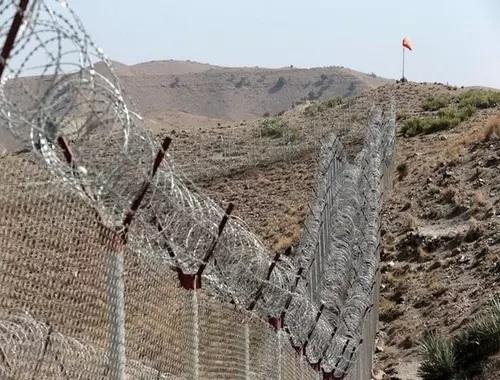Afghanistan to relocate Pakistani refugees displaced during Operation Zarb-e-Azb

The spokesperson for the Taliban government, Zabiullah Mujahid, said the move is to reassure its eastern neighbour that the refugees are not involved in attacks against Pakistan. He said: "To give a general assurance, the Islamic Emirate planned to take the refugees, who come from the other side of the Durand Line in Khost and Kunar provinces, to far provinces, so that they will be away from the (Durand) line ... to show that they are not involved in the attacks that happen in Pakistan", reported Tolo News.
It seems that Afghanistan's Taliban government is planning to settle Pakistani nationals who had fled Pakistan in 2014 after the country launched the Operation Zarb-e-Azb - the sword of the Prophet, in North Waziristan. Islamabad began the military operation to get rid of numerous extremist groups that had settled in Khyber Pakhtunkhwa, Pashtun-dominated regions on the border, and led to the displacement of up to one million people, many of who fled to Afghanistan.
The Pakistani nationals have been residing in Afghanistan's Kunar, Khost and Paktika provinces since then.
Tolo News cites a report by the Norwegian Refugee Council (NRC) from 2019 which says that "approximately 72,000 refugees remain, the majority living in Gulan Refugee Camp close to the internationally recognized border between Pakistan and Afghanistan in Khost. In addition, cross-border clashes around the Durand Line in May 2019 displaced a further 750 families from North Waziristan into Khost as well as over 400 refugee families who had been previously residing in Paktika."
Tensions have escalated between the two South Asian neighbours after the Pakistani interior and defence ministers repeatedly alleged that terrorists from Afghanistan-based Tehreek-e-Taliban Pakistan (TTP) have been attacking Pakistani security personnel. Islamabad even threatened to attack the TTP camps across the border inviting a sharp repartee from the Taliban.
Pakistani deputy Minister for Foreign Affairs, Hina Rabbani Khar, also reiterated that engagement with the Afghan government is "preconditioned" on Kabul reining in the TTP.
The TTP has targeted Pakistani forces across Khyber Pakhtunkhwa and in some areas in Balochistan, killing hundreds of police and paramilitary personnel this year. The Afghanistan-Pakistan border has not been recognised by Afghanistan - either the Taliban government or the democratically-elected government led by President Ashraf Ghani.
Even the Pashtuns on both sides of the border want it to remain open and have blown up the fences being erected by the Pakistani Army. Dozens of fighters and soldiers have lost their lives as the border forces of the two nations clashed repeatedly after the Taliban assumed power.
Relations between the allies have soured after the Taliban gunmen stormed Kabul in August 2021 and took over power from Ghani, who fled to the United Arab Emirates. Pakistan, which was looking forward to welcoming the Taliban in Kabul, got a shock after the Taliban government decided to go independent and not take orders from Islamabad.
The dramatic assassination of Al Qaeda chief Ayman al-Zawahiri by an American drone in Afghanistan, seen by Kabul as a treacherous trick by Pakistan trying to curry favours with the US, drove their relations further down.
With many countries trying to open up a dialogue with the Taliban - the de facto ruler in Afghanistan, both Kabul and Islamabad are trying to outsmart the other.
(The content is being carried under an arrangement with indianarrative.com)
--indianarrative
Disclaimer: This story has not been edited by the Sakshi Post team and is auto-generated from syndicated feed.





